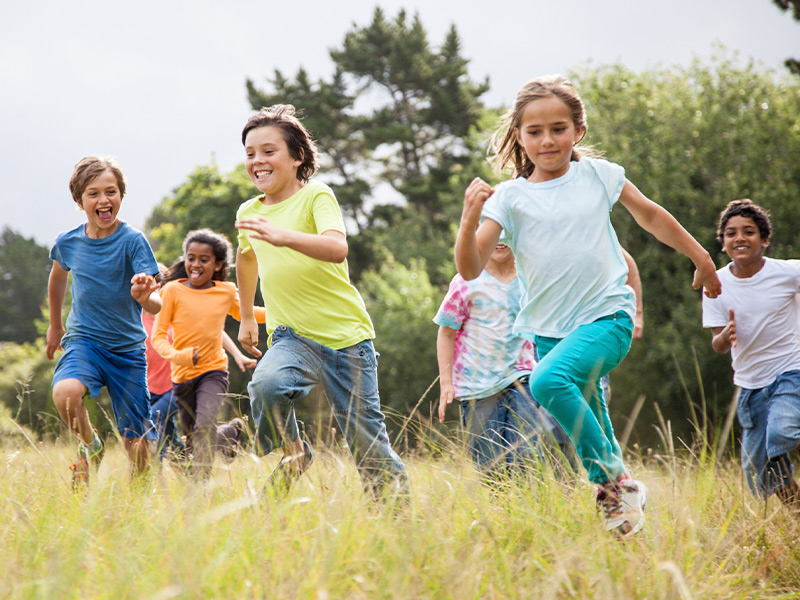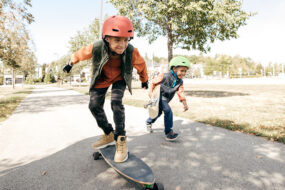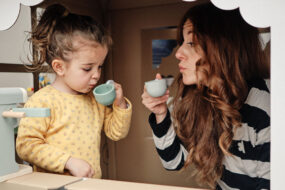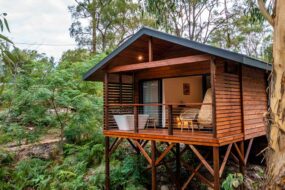How to help kids achieve a healthy balance of sport, screen and sleep
Making sure your kids are getting an even mix of exercise, screen time and rest can be tough. A new app may help you achieve a healthy activity balance.
Parenting can feel ridiculously hard sometimes (all the time) and making sure kids get a healthy activity balance is yet another challenge.
Ensuring our kids’ days aren’t too sport heavy, they don’t have too much screen time and aren’t too sleep deprived can seem like an insurmountable task.
A new app is helping parents understand which combination of activities can best help our children’s mental, physical, and academic wellbeing.
Developed by the University of South Australia in partnership with the Murdoch Children’s Research Institute, the Healthy-Day-App has been designed to encourage a healthy activity balance for kids.
An accompanying study found that shifting just 60 minutes of screen time to 60 minutes of physical activity resulted in 4.2 per cent lower body fat, 2.5 per cent improved wellbeing, and 0.9 per cent higher academic performance.
How can the app guide a healthy activity balance?
The researchers assessed 1685 data records from the Australian Child CheckPoint study of kids aged 11-12 years containing a diverse set of measures of daily activities, mental physical health and academic performance (NAPLAN) to create the app.
“The app basically allows users, whether they are parents or health professionals, to make hypothetical adjustments to time use behaviours,” lead author Dr Dot Dumaid explains.
“Firstly, it asks parents to input their child’s 24-hour time use across seven categories – sleep, screen time, quiet time, transport, school-related time and domestic and self-care time, which includes things like chores and getting ready for school.
“By tracking a child’s current activities over the day and using the app to adjust these, parents can consider how possible changes to their day might impact their health.”
(It also includes an advanced option for health professionals to account for puberty and socio-economic status.)
Expected differences to body fat percentages, mental health, and academic performance are then computed and displayed.
What is a healthy activity balance?
According to the Australian Institute of Health and Welfare and the Sleep Health Foundation, here is the amount of physical activity, screen time and sleep kids should be getting for their age:
Preschool aged children
- at least 180 minutes of physical activity, including energetic play
- no more than 60 minues a day of screen-based activity
- 10-13 hours of sleep
Primary school aged children
- at least 60 minutes a day of moderate to vigorous intensity physical activity
- no more than two hours a day of screen-based activity for entertainment (such as television or seated electronic games)
- 9-11 hours of sleep
Secondary school age children
- at least 60 minutes a day of moderate to vigorous intensity physical activity
- no more than two hours a day of screen-based activity for entertainment (such as television or seated electronic games)
- 8-10 hours of sleep
The Healthy-Day-App is just a guide
Psychiatrist and author Dr Tanveer Ahmed says apps can be a great “side aid” to parenting in helping to provide measurements and accountability.
“Modern parenting can be hard, and screens are such a big part of life,” Dr Ahmed says.
“The only thing to be wary of is that they can make anxious parents more anxious.
“I’d suggest thinking of apps like this one as ‘data analysis’ for the home.
“Seeing a clear picture of where your child’s time is spent can give you ideas about where you can fit in time to walk the dog or go to the park.
“You can even share it with your kids so they can see how much of their time is being spent on screens because, for many of them, it will be a surprise to see it in black and white.”
Dr Ahmed says using the app could help enforce a timetable at home where small swaps could lead to better health and wellness outcomes.
- Guiding kids: 10 golden rules for parents of teens
Why kids need time to be free
“One thing parents need to be wary of is that childhood these days is almost too structured,” Dr Ahmed cautions.
“Kids need unstructured play, and they need to learn about taking risks, in a healthy way.
“Parents tend to over structure and over plan and over worry, so remember to factor in times where your kids are outdoors in a natural environment.”
That’s backed up by a recent study out of the UK, which found modern kids play outside half the amount of time compared to their parents’ generation, and that, on average, those aged 10 to 16 now spend only 12.6 minutes a day on vigorous outdoor activity.
“It’s important to remember that every child and every day is different,” Dr Dumiud says.
“I encourage parents to play around with the app because it might just make you reconsider how much screen time your child has – try it and see – it may surprise you.”
- Free spirits: 7 types of play that are awesome for kids
Written by Liz McGrath.





